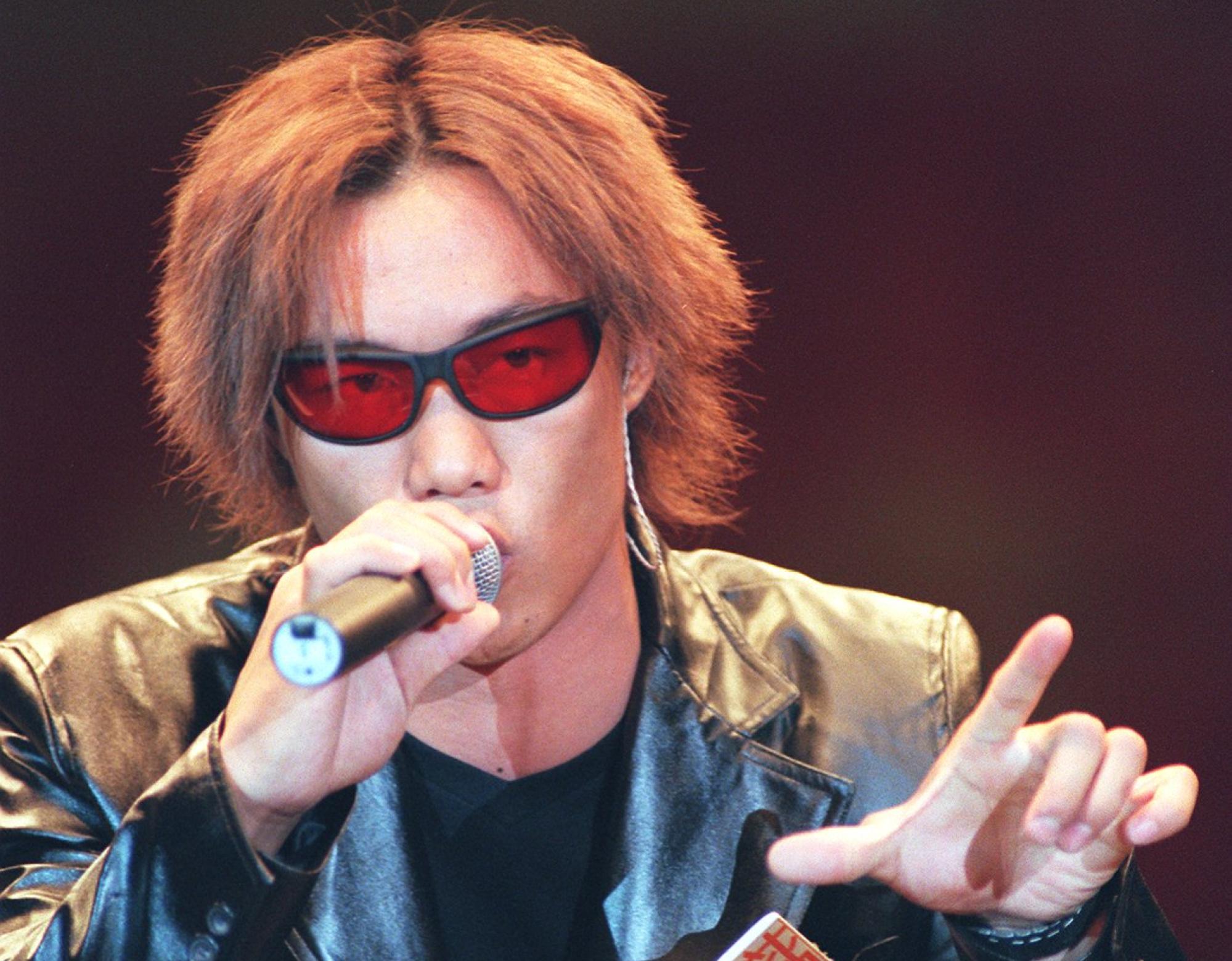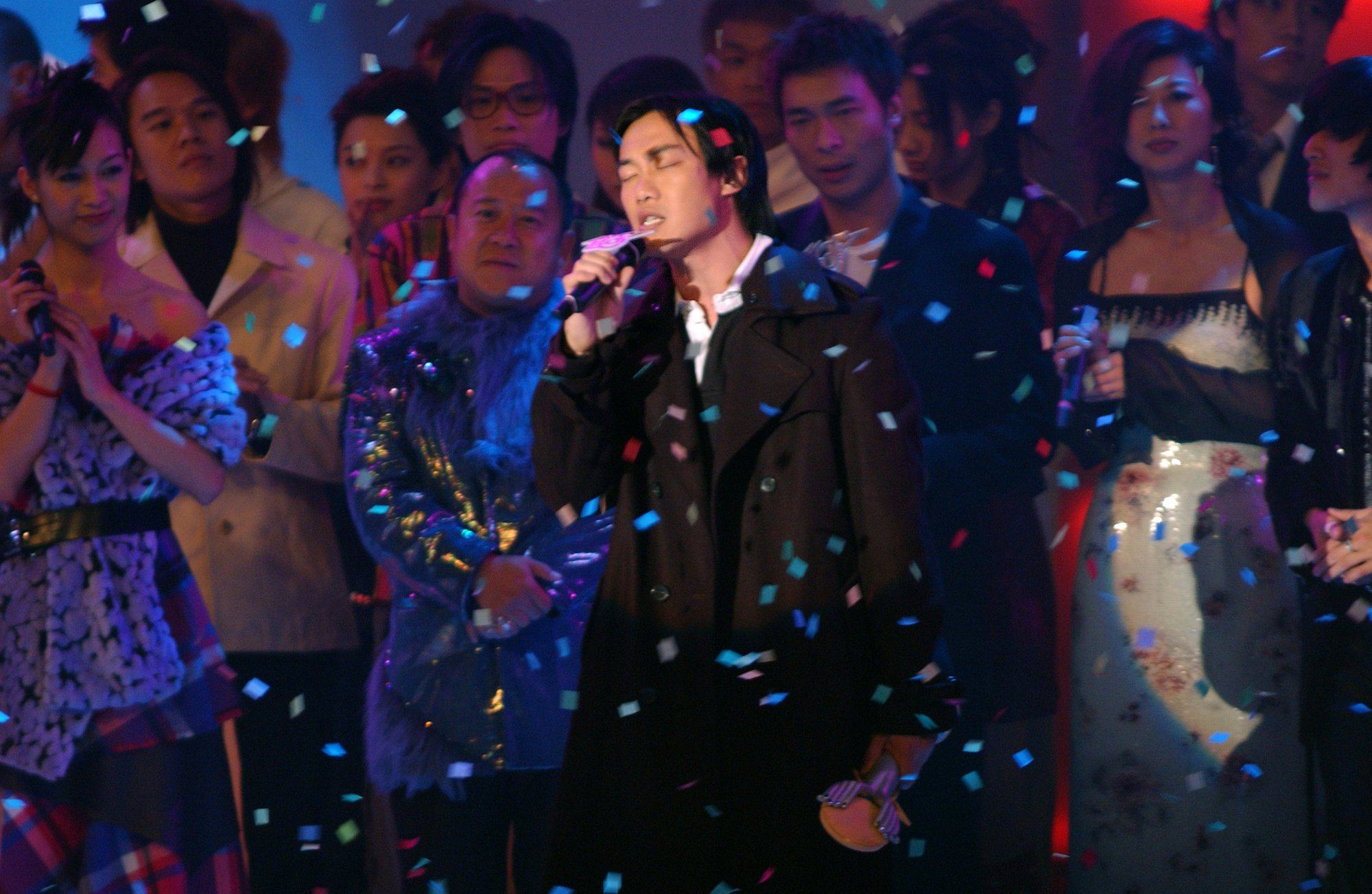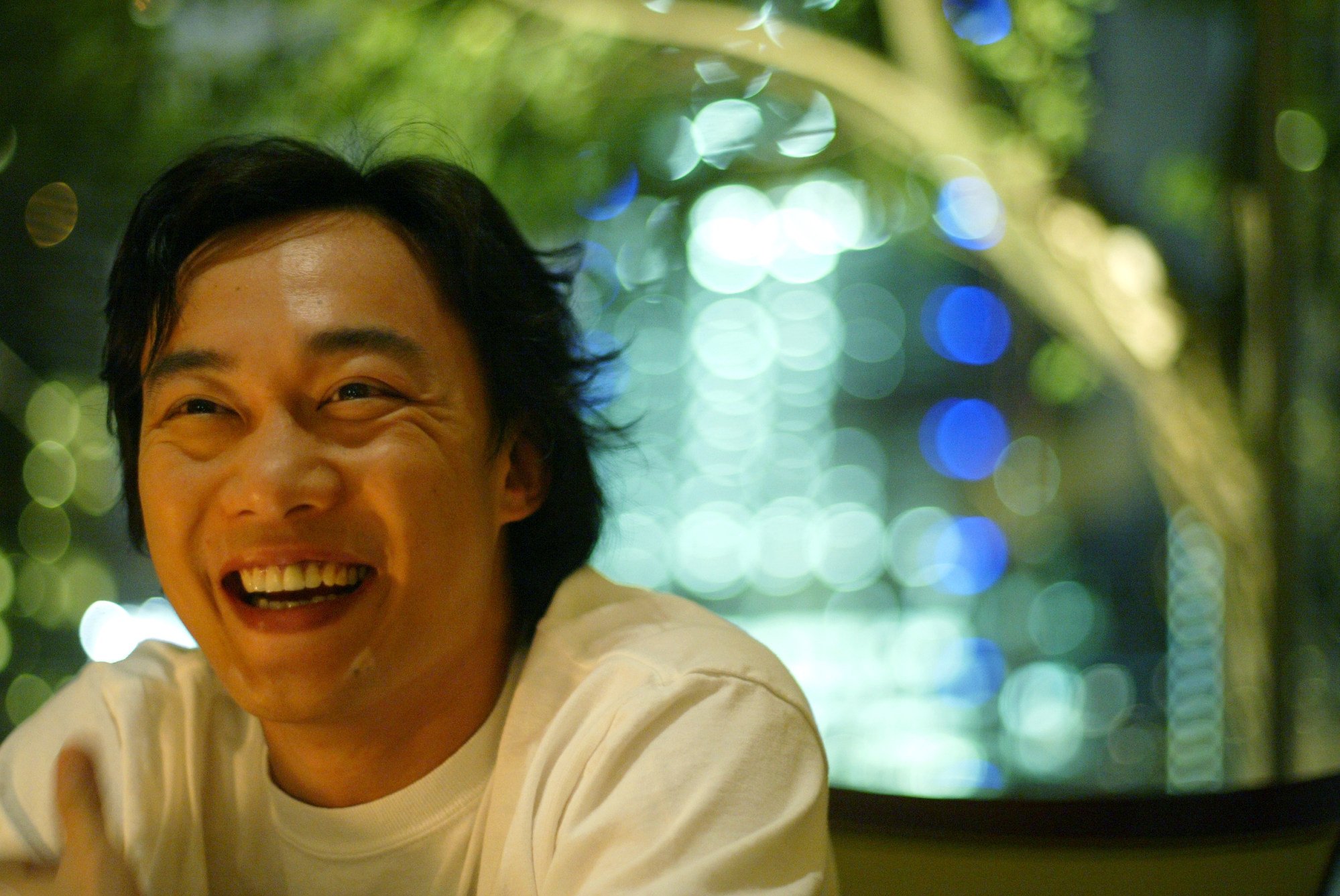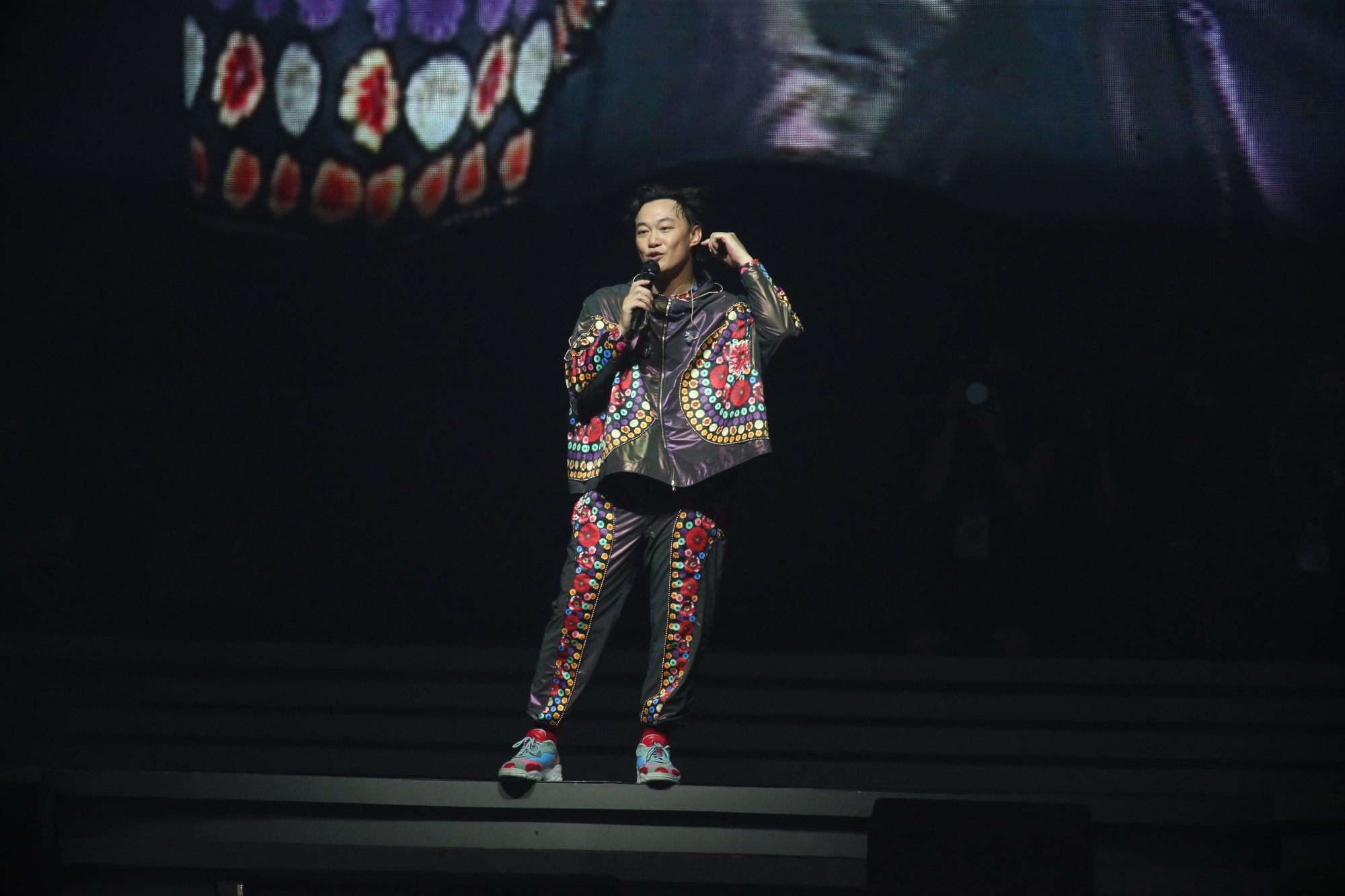Chan won first place with “Moon Gazing”, a Cantonese song originally sung by Jacky Cheung Hok-yau, and he scored a recording contract with Hong Kong label Capital Artists.
“I realised I gotta be serious about this. This is pro stuff. It’s probably then that I started thinking that [this] was actually … a career,” Chan said.

Chan released debut album Eason Chan in 1996, but this Cantonese album did not attract much attention. His first Mandarin album, A Drop of Tear, came out in 1997.
After releasing a string of albums, some of his songs, such as “There’s No Another” and “Happy Ferris Wheel”, became popular not just in Hong Kong but also in Taiwan and mainland China.
A turning point in his career came in 2000 when he signed with music label Emperor Entertainment Group. His first Cantonese album with the new company, Some Like It Hot (2000), received a platinum award from the International Federation of Phonographic Industry (Hong Kong Group) for its outstanding sales volume.
“King of Karaoke”, one of the album’s tracks that borrowed the titles and melodies of many popular Cantopop songs, quickly became a hit and garnered a slew of music awards.

His subsequent albums, such as Shall We Dance? Shall We Talk! (2001), The Easy Ride (2001) and The Line-Up (2002), continued to receive acclaim, and his Mandarin album It’s Me (2001) expanded his popularity across Southeast Asia.
In 2003, Chan won best male Mandarin singer for the first time – he would win again in 2015 and 2018 – and best album of the year for Special Thanks to … (2002) at the Golden Melody Awards in Taiwan. He is only the second Hong Kong male singer, after Jacky Cheung, to win the best singer accolade at the awards.
That year, he released the album Black, White & Grey, in which the song “Ten Years” – a Mandarin version of his Cantonese song “Next Year, Today” – became a hit in China, and his popularity in mainland China skyrocketed.

“There’s always tough times in life, and it happens in any job, to any person. But these experiences make you stronger,” Chan told the Post in 2016. “I don’t tend to remember the bad things, and I guess I’m really enjoying my life right now.”
In 2005, Chan signed with Universal Music Group and released U87, one of his most critically acclaimed albums. The albums that followed continued to broaden his appeal and garnered a bunch of awards, cementing his position as a leading figure in the Asian music scene.
Chan won the most outstanding male singer award for 13 consecutive years and the global Chinese gold song award 10 times in Hong Kong public broadcaster RTHK’s Top Ten Gold Songs Awards.

During the ceremony, Chan delivered a speech, saying: “I’ve received a lot of awards, actually more than I deserve, I think.” He said it pushed him to think about the meaning of his awards and so-called success.
“To me, success is having a very kind and loving heart and I think that’s the best,” he said.
In 2006, Chan married his long-time partner, former actress Hilary Tsui Ho-ying, a year after they welcomed their daughter into the world. Despite the occasional rumour and speculation about their marriage, Chan has always publicly expressed his love and commitment to his wife.
Chan has performed in more than 300 concerts around the world since 1999. His Fear and Dreams World Tour, which began in Hong Kong at the end of 2022, continues – although he has been temporarily sidelined by an injury after fainting from heatstroke.

Cantopop has, since its peak in the 1990s, taken a back seat to the rising influence of K-pop from South Korea and Mandopop from mainland China and Taiwan. Still, Chan remains one of those keeping Cantopop in the spotlight.

“Cantopop has built its own character by having a similar structure and arrangement,” he said in 2016. “There are variations in Cantopop. Many artists are trying many different things. It’s just that people mostly just talk about a few songs.
“And I don’t think it’s a problem. Those songs are popular for a reason.”

